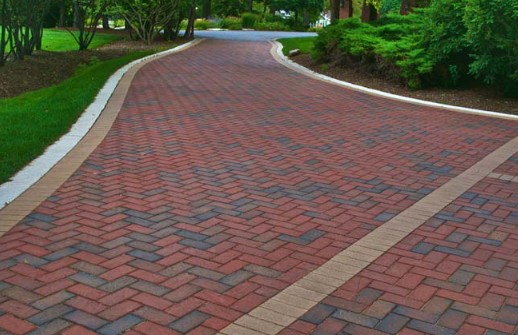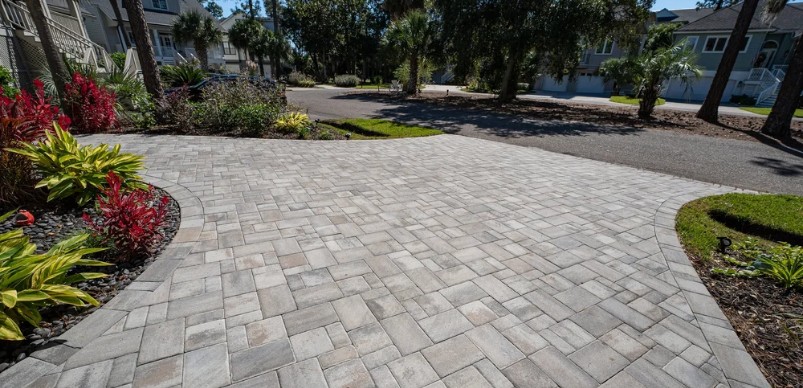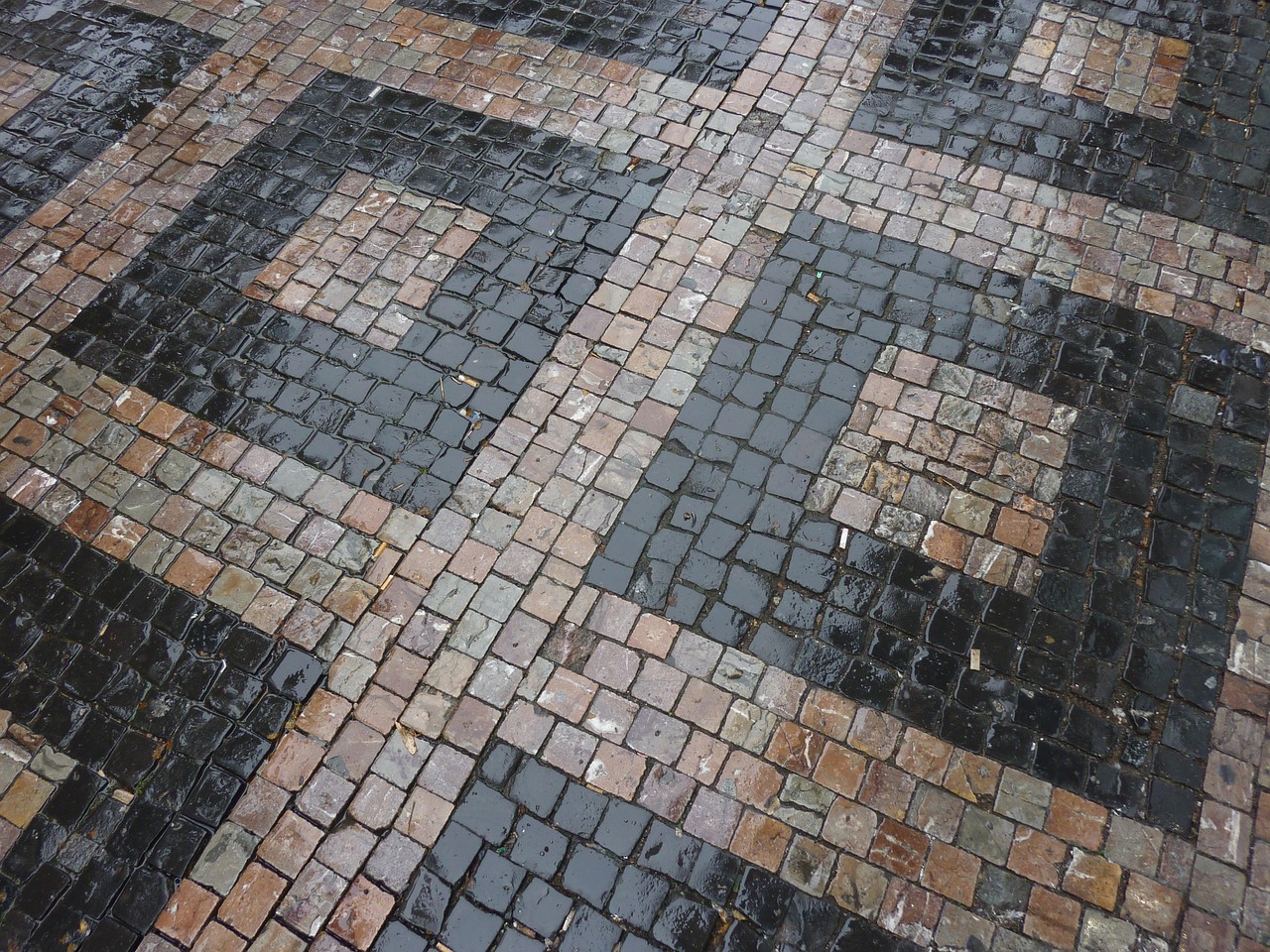When planning a patio, walkway, pool deck, or driveway, one of the biggest decisions you'll make is choosing between brick pavers and concrete pavers. Both are durable, attractive, and versatile — but they differ in material makeup, appearance, cost, maintenance, and long-term performance.
This guide offers a complete comparison of brick vs. concrete pavers to help you choose the right option for your Palm Beach County home.
1. Understanding the Difference
| Feature | Brick Pavers | Concrete Pavers |
|---|---|---|
| Material | Natural clay molded and kiln-fired | Cement, sand, and aggregate mixture molded and air-dried |
| Color Source | Naturally pigmented clay | Artificially pigmented concrete |
| Shape Options | Typically rectangular | Available in many shapes and sizes |
| Texture | Naturally rough or rustic | Can be smooth, textured, or stone-like |
| Installation | Slightly irregular sizes → requires more skill | Uniform sizing → easier to install |
| Durability | Very long-lasting but may chip under heavy loads | Extremely durable, resists cracking, fading, freeze-thaw |
| Maintenance | Low; no sealing required | Low to moderate; may need periodic sealing |
| Cost (Installed) | $8–$30 per sq. ft. | $5–$25 per sq. ft. |
| Best Use | Walkways, patios, traditional designs | Driveways, modern patios, large outdoor areas |
2. Appearance and Style

Brick Pavers
- Classic, timeless aesthetic ideal for colonial, craftsman, and traditional-style homes
- Naturally rich in earth tones (reds, browns, burgundy, terracotta)
- Each brick has slight variations, creating a charming, handcrafted look
- Limited design flexibility since most bricks are rectangular

Concrete Pavers
- Unmatched design flexibility with wide array of colors, textures, and finishes
- Can mimic stone, wood, or even brick appearance
- Creative patterns: herringbone, basketweave, random modular layouts
- Modern manufacturing allows larger-format slabs for sleek, contemporary spaces
Design Tip
Combine two or more paver colors to add visual interest and define zones (e.g., borders, insets, or seating areas).
3. Durability and Performance
Brick Pavers
- Fired at high temperatures, making them dense, strong, and long-lasting
- Naturally colorfast — pigmentation runs through the clay, won't fade under UV exposure
- May chip under vehicle traffic or heavy loads if thin or improperly installed
Concrete Pavers
- Engineered for high compressive strength, ideal for driveways and high-traffic areas
- Resistant to cracking because each paver flexes slightly with the base
- May gradually fade under sun exposure, but sealing helps maintain vibrancy
- Larger sizes reduce installation labor and create smoother, modern surfaces
4. Maintenance Requirements
| Task | Brick Pavers | Concrete Pavers |
|---|---|---|
| Cleaning | Mild soap + water | Soap + water or low-pressure wash |
| Sealing | Not required | Recommended every 3–5 years |
| Weed Growth | Prevent with polymeric sand | Prevent with polymeric sand |
| Repairs | Replace individual bricks if chipped | Replace individual pavers easily |
Maintenance Tip
Both types benefit from polymeric joint sand to minimize weed growth and stabilize the surface.
5. Installation and Flexibility

- Concrete pavers are easier to install due to uniform dimensions — ideal for DIY projects or large-scale installations
- Brick pavers may require professional installation since small irregularities demand more adjustment and precision
- Both can be laid in creative patterns, but concrete offers far greater flexibility thanks to its shape and size variety
6. Cost Comparison
| Cost Component | Brick Pavers | Concrete Pavers |
|---|---|---|
| Material Cost (DIY) | $4–$10/sq. ft. | $5–$10/sq. ft. |
| Installed Cost | $10–$30/sq. ft. | $8–$25/sq. ft. |
| Maintenance Over Time | Minimal | Moderate (resealing every few years) |
| Longevity | 25–40+ years | 20–30 years |
Long-Term Value
While concrete pavers may have a lower initial cost, brick's superior color retention and longevity can make it a better long-term investment.
7. Environmental Impact
Brick Pavers
Made from natural clay and fired using minimal additives. They are recyclable, reusable, and have a lower carbon footprint.
Concrete Pavers
Require cement production (a high-carbon process), but manufacturers are improving sustainability using recycled aggregates and low-carbon cement alternatives.
If sustainability is a key factor, brick pavers typically have the edge.
8. Pros and Cons Summary
| Brick Pavers | Concrete Pavers | |
|---|---|---|
| Pros | Timeless look; natural color; fade-resistant; low maintenance; eco-friendly | Wide color/shape variety; consistent sizing; easy to install; durable; versatile |
| Cons | Limited colors/shapes; higher material cost; may chip; harder to install | May fade; can erode over time; may require resealing; higher maintenance |
9. Popular Concrete Paver Styles (Unilock Examples)
If you decide on concrete, consider some of these top-rated Unilock options:
Beacon Hill™ Smooth
Contemporary, clean lines with a smooth finish.
Copthorne®
Inspired by European streets, perfect for accent borders or walkways.
Courtstone®
Old-world cobblestone appearance with luxury appeal.
Umbriano®
Sleek and modern, made with ColorFusion™ Technology for a granite-like finish.
All Unilock concrete pavers include a Transferable Lifetime Guarantee, ensuring durability and peace of mind.
10. How to Choose Between Brick and Concrete Pavers
Ask yourself the following questions:
- Traditional → Brick
- Modern or custom → Concrete
- Driveway → Concrete
- Patio or walkway → Either
- Lower upfront → Concrete
- Long-term color and value → Brick
- DIY → Concrete
- Professional → Either
11. FAQs About Brick vs. Concrete Pavers
Q1: How long do brick and concrete pavers last?
Both can last 20–40 years with proper installation and maintenance. Brick may outlast concrete due to its natural composition.
Q2: Do brick pavers fade?
No. Brick's color is baked in during kiln firing, ensuring long-term color retention.
Q3: Do concrete pavers crack?
Rarely. They may erode or fade over time, but cracks are uncommon if installed properly.
Q4: Are both materials suitable for driveways?
Yes, though concrete pavers are generally better suited for heavy vehicle loads.
Q5: Can I install them myself?
Yes — but concrete pavers are easier for DIY installations because of their precise dimensions.
Q6: Are there eco-friendly options?
Yes. Both brick and concrete can be made permeable to promote natural drainage and reduce runoff.
Final Thoughts
Choosing between brick and concrete pavers depends on your project goals, aesthetic preferences, and budget.
Choose Brick If You Value:
- Timeless elegance
- Eco-friendliness
- Enduring color
- Beautiful, sustainable choice
Choose Concrete If You Prioritize:
- Design flexibility
- Affordability
- Easy installation
- Modern aesthetics
Either way, you'll end up with a durable, visually striking surface that enhances your home's curb appeal and outdoor living experience.
Ready to Start Your Paver Project?
Our experienced team at Jupiter Patios and More can help you select the perfect paver material for your Palm Beach County home. We specialize in both brick and concrete paver installations with 25+ years of expertise.
Get Expert Advice
Not sure which paver type is right for your project? Our team is here to help you make the best choice.
(561) 277-0888 Free Consultation